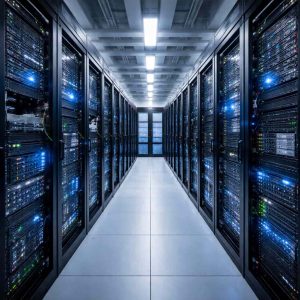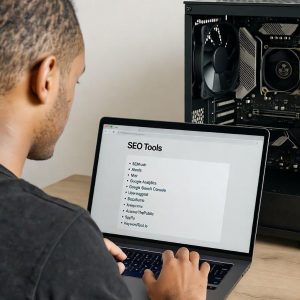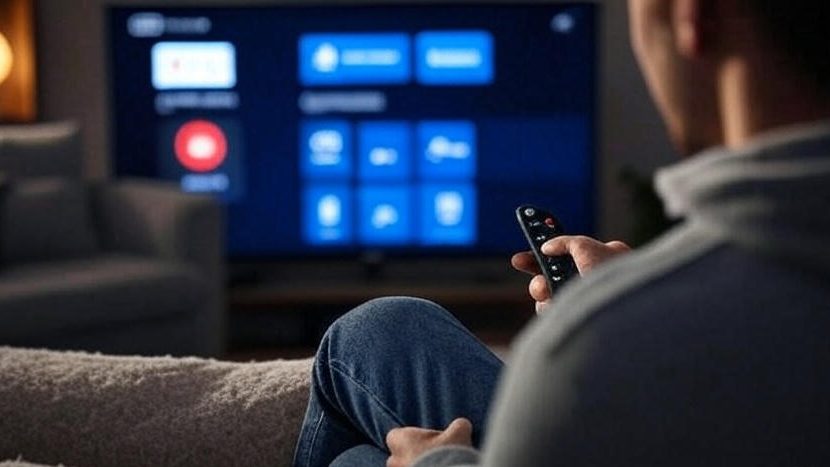
Unlocking the Full Potential of Windows 10 Pro
Windows 10 Professional is designed for users who demand more from their operating system. Power users, including developers, gamers, and business professionals, benefit from its advanced features that enhance productivity and security.
A genuine Windows 10 Pro license (https://ecokeys.co.uk/microsoft-windows-10-professional-genuine-license-key/) ensures users access all premium features without limitations. Unlike cracked or pirated versions, an authentic license provides stable updates, security patches, and complete system compatibility, keeping performance at its peak.
Enhanced Performance and Optimization Tools
One of the standout features of Windows 10 Pro is its robust performance optimization tools. With features like Hyper-V virtualization, Remote Desktop, and enhanced multi-core processing support, power users can easily handle demanding tasks.
Hyper-V Virtualization
Developers and IT professionals use Hyper-V to create virtual environments for testing software without affecting the central system. This feature allows users to run multiple operating systems simultaneously, improving workflow efficiency.
Remote Desktop Access
Windows 10 Pro provides full Remote Desktop functionality, enabling users to access their computers anywhere. This is especially useful for professionals working remotely or managing multiple devices across locations.
Advanced Power Management
With Windows 10 Pro, users can fine-tune power settings for maximum efficiency. Power Throttling and battery-saver modes optimize energy use, extending battery life for laptops and mobile workstations.
Security Features for Maximum Protection
Security is a top priority for power users, and Windows 10 Pro offers enterprise-level protection. Features like BitLocker encryption, Windows Defender Advanced Threat Protection, and Secure Boot ensure that sensitive data remains safe from cyber threats.
BitLocker Encryption
BitLocker encrypts entire drives, protecting files from unauthorized access. Whether using a personal or business device, this feature ensures that data remains secure even if the hardware is stolen.
Windows Defender Advanced Threat Protection
Windows Defender ATP provides real-time monitoring and proactive security measures. This feature detects and neutralizes threats before they can harm the system.
Secure Boot and Enterprise-Grade Firewall
Secure Boot prevents malicious software from loading during startup, while Windows Firewall adds an extra defense against online threats.
Optimized for Gaming and High-Performance Applications
 Gamers and content creators need an OS that can handle high-performance applications. Windows 10 Pro is optimized for gaming with features like DirectX 12, Game Mode, and superior hardware compatibility.
Gamers and content creators need an OS that can handle high-performance applications. Windows 10 Pro is optimized for gaming with features like DirectX 12, Game Mode, and superior hardware compatibility.
DirectX 12 Support
DirectX 12 enhances graphics performance, delivering smoother gameplay and improved rendering. With better CPU and GPU communication, games run more efficiently on supported hardware.
Game Mode for Performance Boost
Game Mode optimizes system resources to prioritize gaming applications. This reduces background activity, ensuring smoother frame rates and reduced input lag.
Compatibility with High-End Hardware
Windows 10 Pro supports advanced hardware configurations, including multi-GPU setups, ultra-high-resolution displays, and overclocked processors. Power users can maximize their system’s potential without software limitations.
Business-Centric Features for Professionals
For business users, Windows 10 Pro includes features that streamline operations and improve workflow. Integration with Microsoft Azure, Group Policy Management, and Assigned Access ensure seamless productivity.
Microsoft Azure Integration
With built-in support for Microsoft Azure, businesses can manage cloud-based applications efficiently. This enables secure data storage, remote access, and seamless team collaboration.
Group Policy Management
IT administrators can use Group Policy to enforce security settings, software restrictions, and user permissions across an organization. This simplifies system management and ensures compliance with company policies.
Assigned Access for Controlled Usage
Assigned allows businesses to limit user access to specific applications. This is useful for kiosk setups, customer service terminals, and enterprise environments where security is a priority.
Why Choose a Genuine Windows 10 Pro License?
A genuine Windows 10 Pro license guarantees a secure, stable, fully functional operating system. Regular updates, access to Microsoft support, and improved system performance make it a worthwhile investment for power users.
Final Thoughts
For professionals, gamers, and businesses, Windows 10 Pro is a powerful tool that enhances performance and security. Investing in a genuine license unlocks the full potential of the OS, ensuring a seamless and optimized experience.
 Migrating to SAP S/4HANA is not just a software upgrade. It is a shift to a new technical foundation built around in-memory computing, and working with an experienced provider like Accely SAP migration partner can help organizations navigate this transition more effectively. That shift puts hardware decisions front and center. If the infrastructure is undersized or poorly planned, performance issues will follow. If it is oversized, costs can spiral quickly. This article explains the core hardware requirements for an SAP S/4HANA migration, focusing on what actually matters rather than marketing claims or vendor hype.
Migrating to SAP S/4HANA is not just a software upgrade. It is a shift to a new technical foundation built around in-memory computing, and working with an experienced provider like Accely SAP migration partner can help organizations navigate this transition more effectively. That shift puts hardware decisions front and center. If the infrastructure is undersized or poorly planned, performance issues will follow. If it is oversized, costs can spiral quickly. This article explains the core hardware requirements for an SAP S/4HANA migration, focusing on what actually matters rather than marketing claims or vendor hype.

 Custom-built PCs are gaining massive popularity among gamers, creators, and everyday users who crave power and personalization. But even the best-looking rig can stay hidden if it’s not marketed properly. For PC builders trying to grow their visibility online, digital marketing tools can make all the difference. One of the most practical and affordable tools for this purpose comes from Semrush cheap deals, which help small creators and enthusiasts promote their builds effectively without burning through savings.
Custom-built PCs are gaining massive popularity among gamers, creators, and everyday users who crave power and personalization. But even the best-looking rig can stay hidden if it’s not marketed properly. For PC builders trying to grow their visibility online, digital marketing tools can make all the difference. One of the most practical and affordable tools for this purpose comes from Semrush cheap deals, which help small creators and enthusiasts promote their builds effectively without burning through savings.

 It takes a lot of effort to manually publish and engage on all of the networks. You can save your staff a ton of time every week with an SMM panel because it allows you to automate content delivery, schedule campaigns, and manage interactions all from one dashboard.
It takes a lot of effort to manually publish and engage on all of the networks. You can save your staff a ton of time every week with an SMM panel because it allows you to automate content delivery, schedule campaigns, and manage interactions all from one dashboard.

 Gamers and content creators need an OS that can handle high-performance applications. Windows 10 Pro is optimized for gaming with features like DirectX 12, Game Mode, and superior hardware compatibility.
Gamers and content creators need an OS that can handle high-performance applications. Windows 10 Pro is optimized for gaming with features like DirectX 12, Game Mode, and superior hardware compatibility.




 Last but not least, your game console can be used to watch IPTV programs. These great gadgets can be used for all kinds of entertainment with IPTV on Xbox and PS4. You can get Kodi from the Xbox Live store and use it to get IPTV programs on your Xbox One. It’s a great addition to Xbox.
Last but not least, your game console can be used to watch IPTV programs. These great gadgets can be used for all kinds of entertainment with IPTV on Xbox and PS4. You can get Kodi from the Xbox Live store and use it to get IPTV programs on your Xbox One. It’s a great addition to Xbox.



